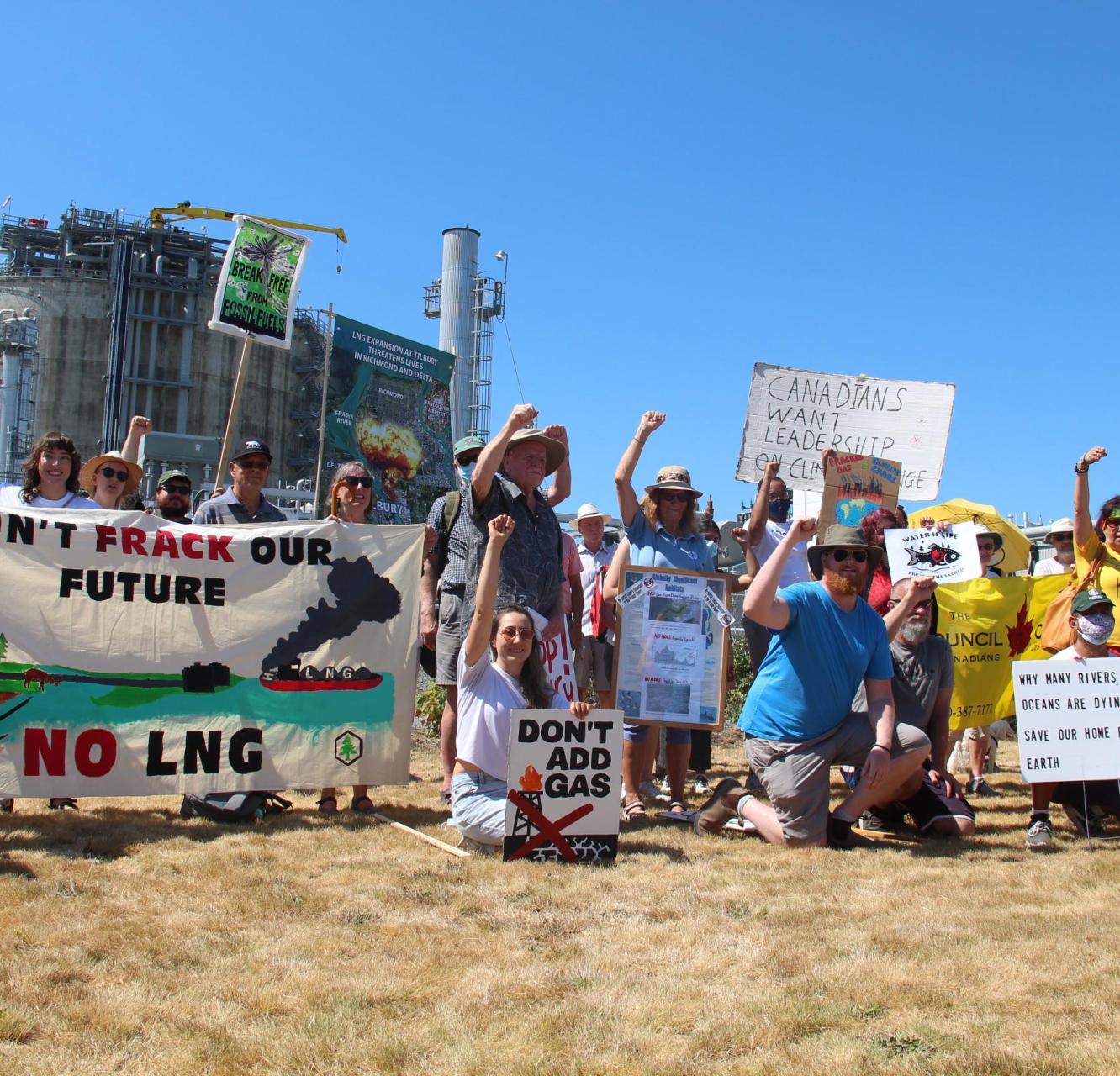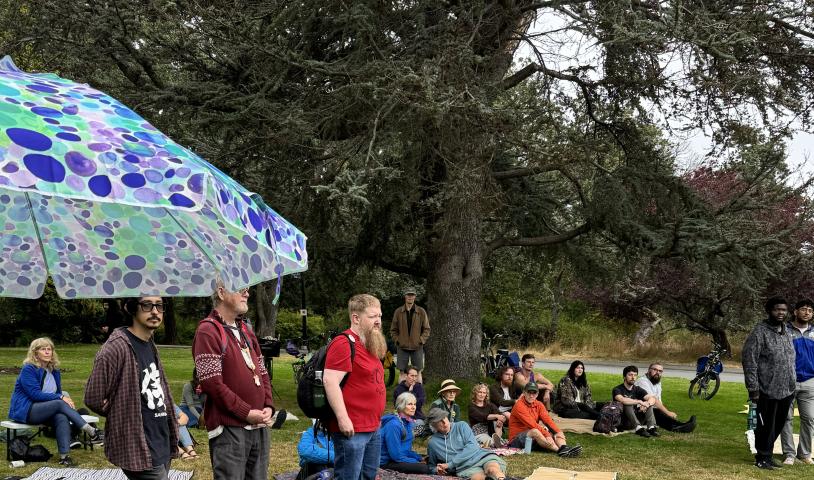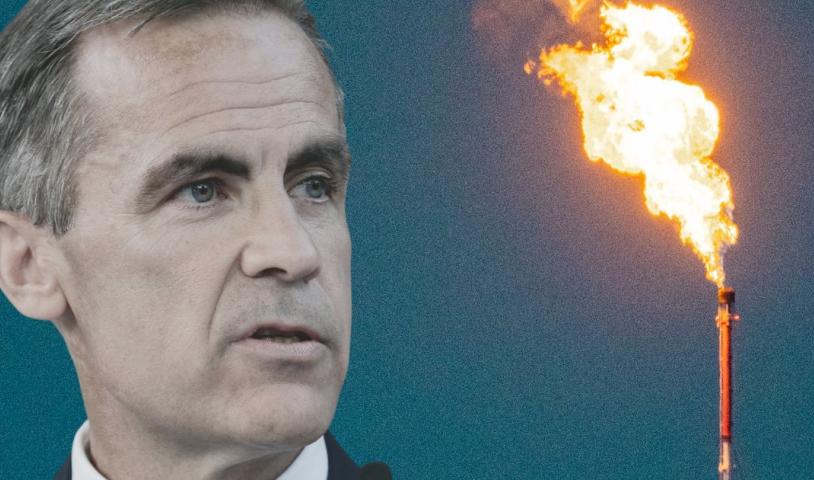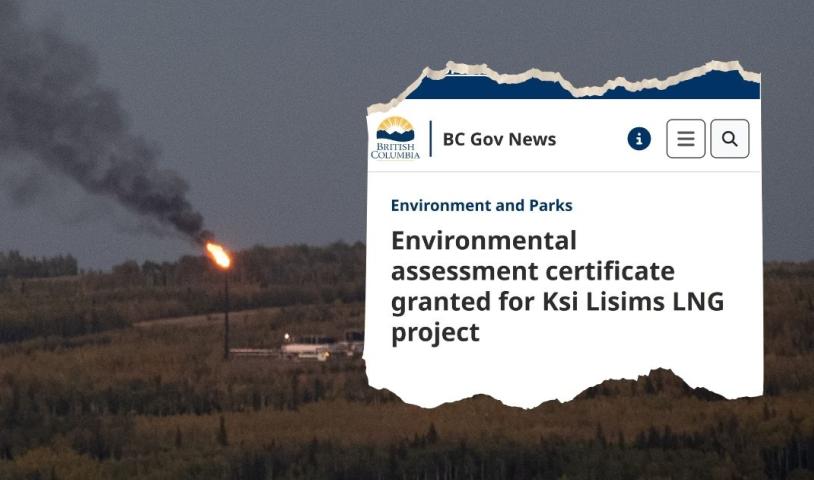Government ‘should be phased’ by CEAA review: Wilderness Committee
Monday, February 15, 2016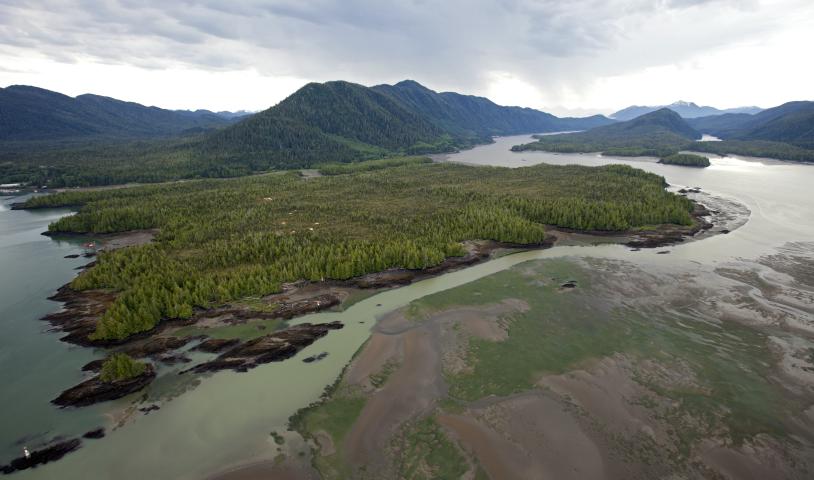
FORT ST. JOHN, B.C. — The Western Canada Wilderness Committee has put an entirely different spin than has the provincial government on the draft report released last week by the Canadian Assessment Agency on the Pacific Northwest LNG project.
Recall Natural Gas Development Minister Rich Coleman indicated the government was not phased by the CEAA questions regarding the impact of greenhouse gas emissions.
However, Wilderness Committee Climate Campaigner Peter McCartney argues it certainly should be phased, because the project would be one of the largest point sources of greenhouse gas emissions in the country.
Thus because of the risks it poses, the committee is calling on the federal government to reject the project, and McCartney is disappointed with the CEAA finding, that the export terminal will ‘not’ lead, to adverse Skeena salmon fishery impacts, at its proposed Prince Rupert area location.
McCartney has also issued a warning about the idea recently pushed forward by Energy Minister Bill Bennett to build a billion dollar power line to send BC electricity to Alberta.
The provincial Energy Minister says the federal government is keen to help build a new one billion dollar power line between BC and Alberta.
Bill Bennett says he raised the issue last week with his federal counterpart and he claims, “Ottawa is very interested from the perspective of Alberta getting off fossil fuels as much as possible.”
Alberta’s NDP government is phasing out the use of its eighteen coal-fired power plants by 2030 as part of a climate change plan to replace two-thirds of the power with renewable electricity — primarily wind power — and the rest with natural gas.
There’s already one electrical line connecting the two provinces, but reports suggest its capacity is limited, and by building another one, B.C. is reportedly hoping to capitalize on the Alberta power transition.
Alberta’s Energy Minister says, “B.C. certainly offers renewable production potential, but this is something we in Alberta would need to study,” and he adds, “It is quite a ways down the road.”
McCartney put an entirely different spin on the proposal, and focused primarily on B.C. government motivation.
That echoes the views of former NDP leader Adrian Dix, who argues BC Hydro’s domestic demand is dropping and its’ estimates for power consumption over the next 20 years — used to justify the Site C construction — are far off the mark.
However, Bennett says Hydro is properly forecasting a 20 year demand which anticipates the need for Site C, and he adds, “In this case we can see an opportunity for both jurisdictions to benefit from the sale of our electrical to them.”
Photo: Lelu Island, where Pacific Northwest LNG plans to build (Brian Huntington)
